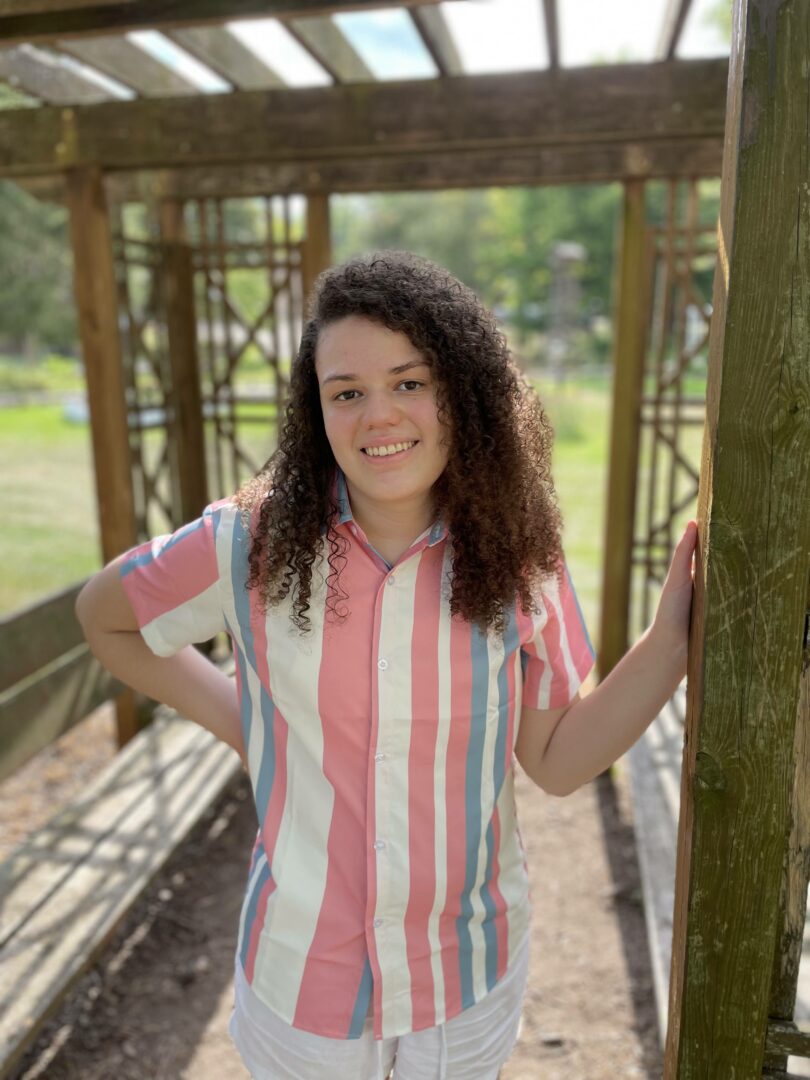We recently connected with Kyle Robateau and have shared our conversation below.
Kyle, thanks for taking the time to share your thoughts with us today. We’re excited to dive into your story and your work, but first let’s start with a broader topic that might be stopping many of our readers from pursuing their dreams – haters, nay-sayers, etc. How have you managed to persist despite haters and nay-sayers that inevitably follow folks who are doing something unique, special or off the beaten path?
The beginning of my college career was rather rough, as classes at my school were filling up and I had trouble finding my place amongst my peers. At the time I was fully invested in my own original comic series, something I had been working on relentlessly since I was 17. I remember having other peers telling me that I was too young to start a series like that, or that I was in over my head. A lot of the “advice” I was getting essentially told me to just sit down and wait until I graduated. This mindset made me incredibly unhappy, I was itching to get to work and create things and it felt like everyone was telling me it was a bad idea to do so. I even became scared to draw anything for a while because I felt so silly for thinking that I could ever do something like create a comic series and be good enough for my work to be seen by others. It was a long climb out of that dark pit. It took until the beginning of my Junior year of college for me to regain my footing and feel confident again, and what really helped me was when I started telling myself, “well, prove them wrong!” I started working again on similar projects I had planned when I was younger but at smaller, more manageable scale. I also found joy again in creating my artwork by consuming new pieces of media and letting myself draw for fun as well. Drawing things I was interested in such as fan art also became the biggest way I am currently able to monetize my artwork, since now a big part of my work is selling at conventions. Selling at conventions also helped me get so much better at talking to people and pitching my art to others. It has improved my confidence by leaps and bounds and has helped me find my voice.
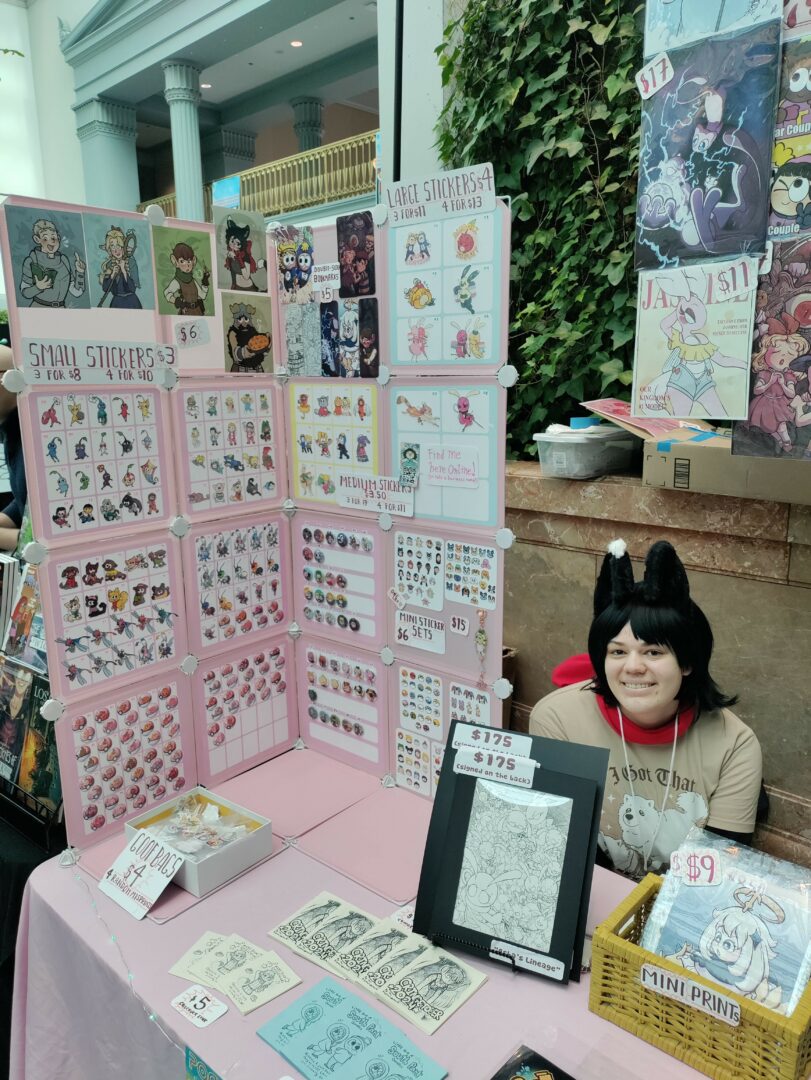
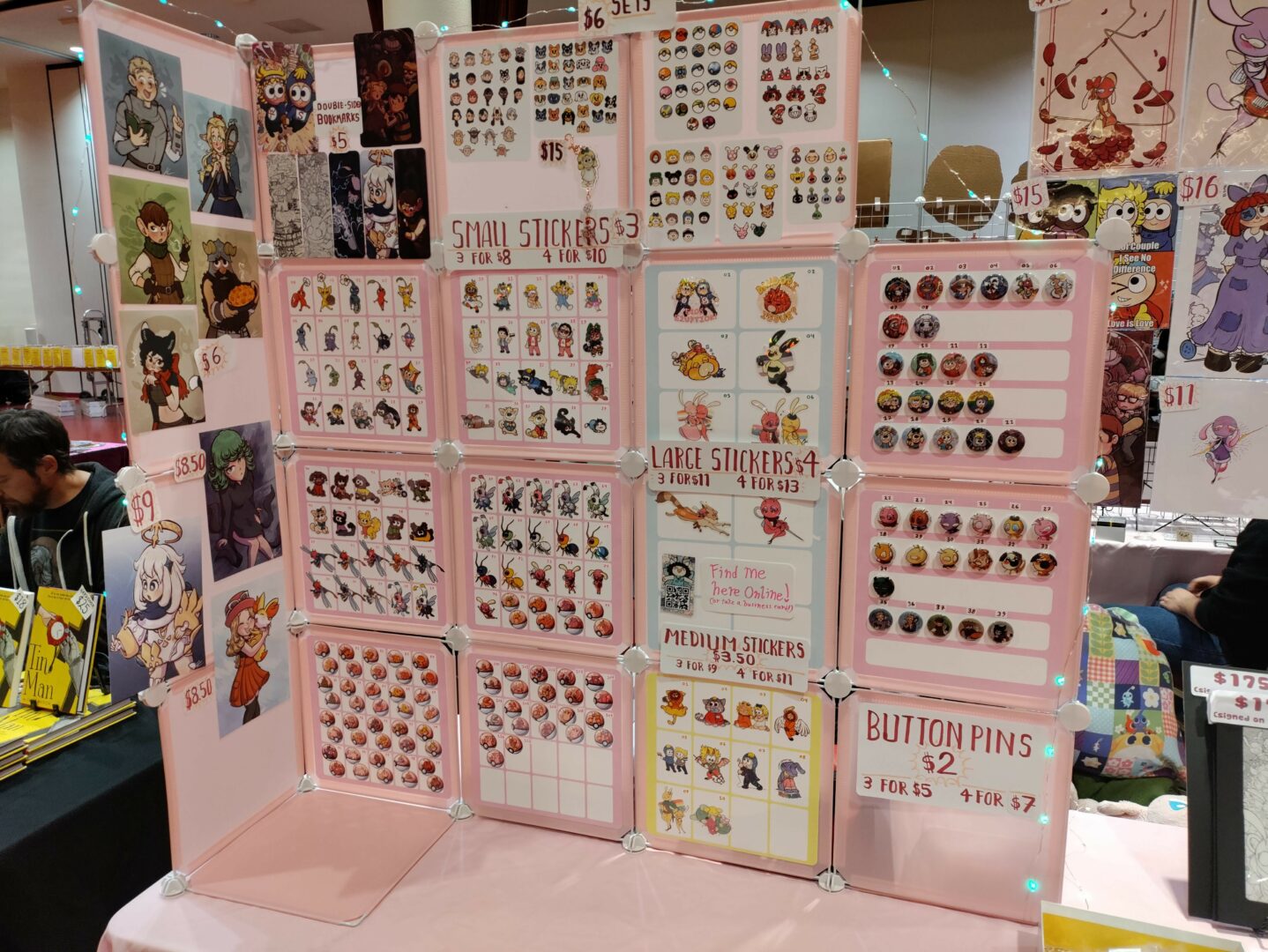
Thanks for sharing that. So, before we get any further into our conversation, can you tell our readers a bit about yourself and what you’re working on?
I run my small business, called The BugMangaka! I got the name from the fact that I make manga-style comics, which would make me a “mangaka,” and the fact that many of my original characters are bug and insect-themed. I do freelance work creating illustrations for private clients and I sell merchandise at conventions and exhibitions. I was inspired to start selling my work at conventions after my cousin took me to my very first anime convention in the summer of 2023. Being surrounded by so many artists who were making profit from their work flooded my mind with ideas of all the things I could create and sell! I started out by making stickers by hand, with my regular $80 Canon printer, vinyl sticker paper, and a pair of scissors. I started an Etsy shop where I sold them. During my day job at the IT department of my college, I would design new stickers or work on cutting them out. Eventually I got enough orders that I upgraded to a Cricut to cut them out for me. I expanded with a cheap button maker, and used the wide-format printers at my school to make art prints that I’d cut myself. I make my own envelopes with cardstock and my own shipping boxes with old iMac boxes I’d cut up at work and bring home. I even save the bubble wrap I get from other packages to use when packing my own orders. I try my best to save as much money as possible this way. I sell primarily at comic cons and anime conventions, where I’ve slowly upgraded my setup with the profit overtime so that I have pink square cubes and a large photo stand to display my work. Selling at conventions is the best decision I have made during college without a doubt. Art school can be wonderful, but it won’t guarantee you a job. To make connections you have to go out of your way to reach out to others. I’m pretty shy, so putting myself in front of strangers and convincing them to buy something I poured my heart into was terrifying. But it’s like driving, it’s scary at first, but the more you do it, the better you get until it’s second nature. I travel up to 3 hours for conventions, going to southern Illinois, Indiana, and Wisconsin. I’ve met publishing houses, I’ve been offered an internship, I’ve gotten freelancing job offers, and I’ve made MANY friends I still keep in touch with all from selling at cons. Using the resources my school gives me, such as the giant printers, has been a big help as well. My professors have been incredibly supportive of what I do, too! Many comic professors also sell at cons as part of their art practice. I just upgraded to a giant Epson Ecotank printer, so I’ll be printing and selling some of my original comics soon! Keep an eye out for my booth at DuPage Comic Con in March and Madison Comic Con in May.
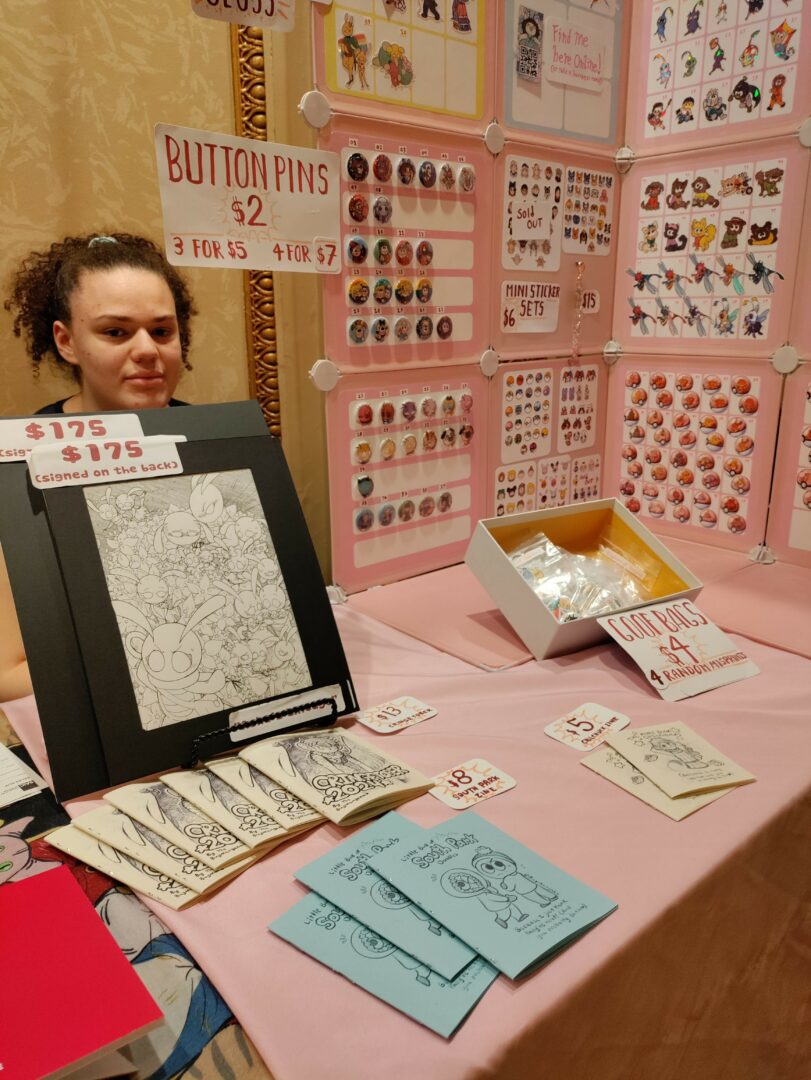
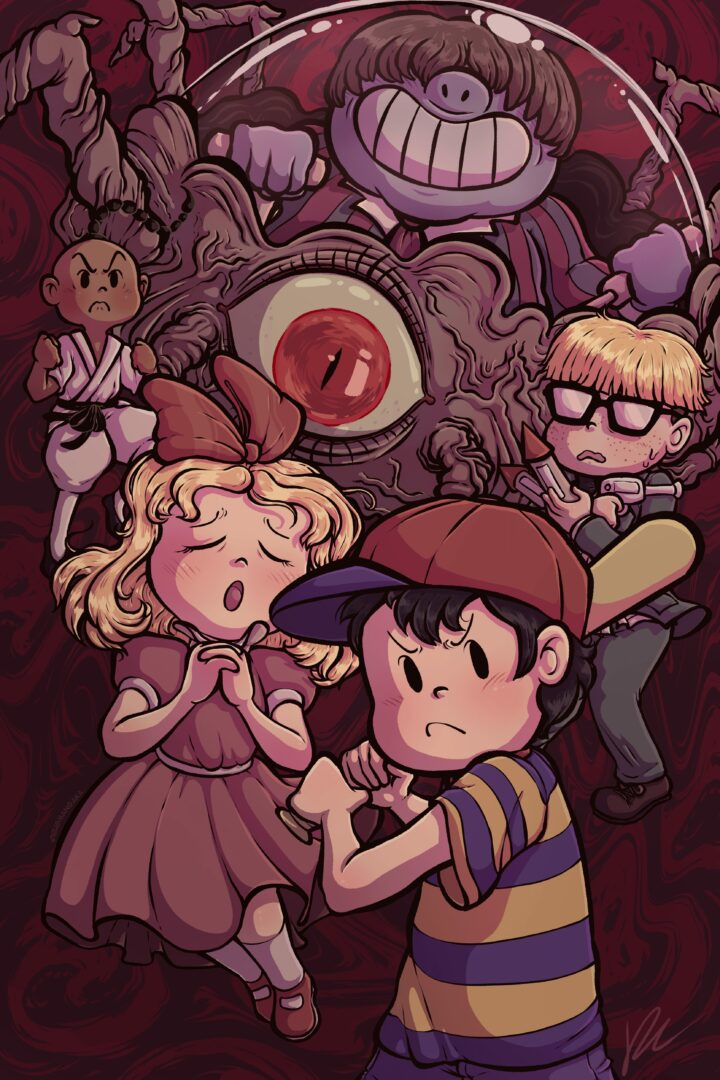
Looking back, what do you think were the three qualities, skills, or areas of knowledge that were most impactful in your journey? What advice do you have for folks who are early in their journey in terms of how they can best develop or improve on these?
I think three qualities that were important throughout my artistic journey were perseverance, bravery, and wanting to learn. For perseverance, there were many times where I straight up felt like quitting art. When somebody leaves a mean comment, or when a critique goes badly, or I can’t help but compare myself to classmates I think are far more skilled than I am, not letting myself give up is the reason I still make art today. Bravery means doing things despite being scared. I feel nervous almost every time I set up for a convention. I used to be even more terrified when I just started out. I’d sign up for an event months in advance, then the day would approach and I’d be dreading it, but I’d get up and pack the car and make myself drive 2 hours and set up anyway. Then, I’d end up having a lot of fun! Eventually, the fear started to subside a lot and I started to feel more confident. Wanting to learn more has also been one of the big reasons I keep creating. Every time I meet a new artist friend at an event I learn about their practice and it often gives me ideas. I’ve met people who do wood-burning, resin sculptures, sewing, print-making, and sometimes mediums I’ve never heard of before. It makes me want to learn how to create even more kinds of artwork. If I were to give advice to those who are interested in this part of the art world, I would mainly say to chase the art that brings you joy. It may sound simple, but it is very difficult to do in practice, as we are always being observed and judged by others through social media or even just through the act of sitting at a booth with your drawings laid out on the table. It can be easy to fall into the trap of creating the art that gets the most likes, or creating merch for the shows or games that are trending, but if you don’t like creating it, it will burn you out. Whether it’s original story ideas, poetry, fan art, comics, if it is something YOU want to see, make it, and you’ll eventually find others that also want to see it. It is the best feeling in the world when somebody comes up to my booth and I see their eyes light up because they found something they love. And because I made it because it’s something I also love, we instantly have a connection through that artwork. Create your joy and that joy will spread to others.
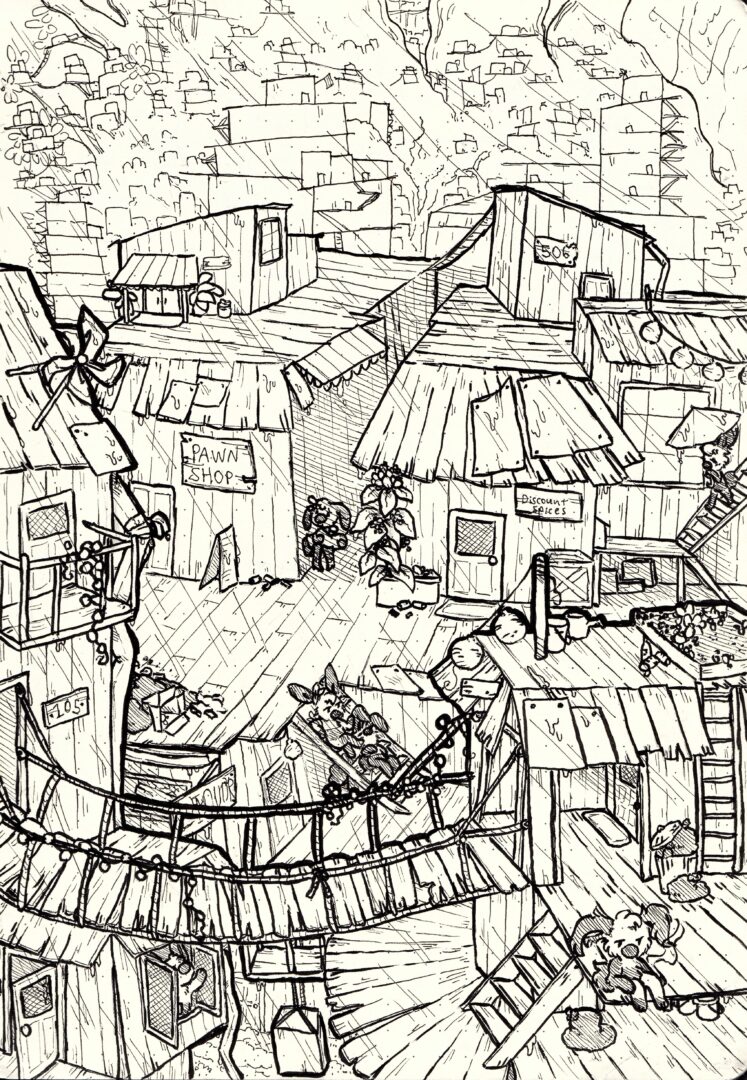
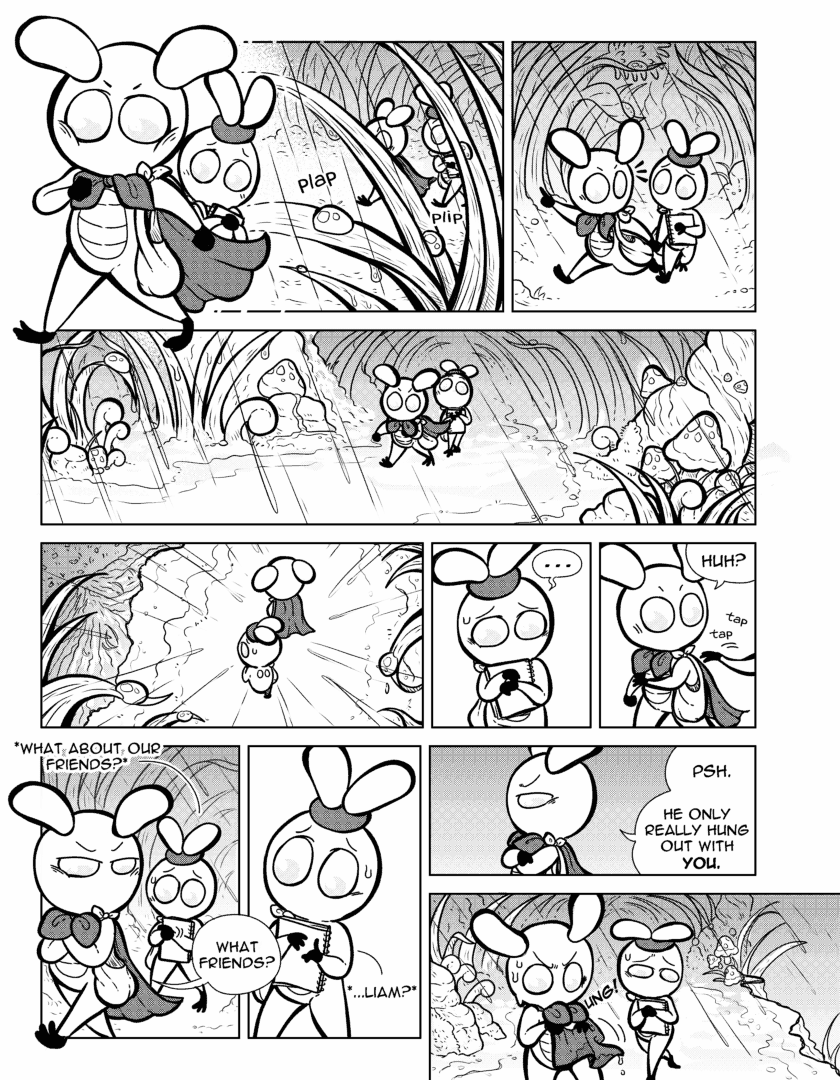
Any advice for folks feeling overwhelmed?
Feeling overwhelmed can put an immediate halt to my work. The definition of “overwhelmed” can also differ depending on the situation. It can mean having too many tasks to complete, or the task is too large. However, I am an autistic person with OCD, so the definition has more specific meanings to me. It’s easy to get overwhelmed in an environment with lots of noises or people, and since selling my art requires being in those spaces, I bring things with me to help regulate myself. I have a small plush toy I bring with me everywhere, the texture of petting it can be very grounding in stressful situations. Letting myself stim in ways such as rocking in my chair is also nice. While I can’t wear my noise-cancelling headphones while I’m actively selling my work, I do usually wear them during set-up and tear-down to reduce the amount of stimuli, Another interpretation of “overwhelmed” for me can mean having an intrusive thought. OCD and rumination go hand in hand, and having an intrusive thought about my artwork can shut me down for a while. This is the hardest to deal with for me since many of those thoughts are so specific and small that I usually feel too embarrassed discussing them with others. For example, something such as seeing a mean comment on someone else’s post saying “I hate when people draw eyes this way, it’s so stupid!” can really get stuck in my head. Even though it wasn’t directed at me, I think, “I draw eyes that way… does everybody think this about my art?” Suddenly I can’t draw because all I can think about is how “everyone” will hate my work because of that one detail. When this happens, I turn to meditation. I cannot just get rid of an intrusive thought, nor can I just “not think about it.” I’ve always described it this way: In my mind I am a cat. An intrusive thought is like a cat toy on a string. I want to catch it, so I chase it, but every time I’m about to grab it the string is yanked back just out of my reach. I can keep chasing it forever until I’m tired and frustrated, but doing so won’t make it go away. That’s what ruminating is, it’s an active choice. Instead of repeating the thought over and over in my head, I need to sit with it, acknowledge that it’s uncomfortable without chasing it, and eventually it will fade on its own. This may take a day, or it may take two weeks, but it’s what helps me the most.
Contact Info:
- Website: https://www.thebugmangaka.com/
- Instagram: https://www.instagram.com/bugmangaka/
- Other: https://bugmangaka.carrd.co/
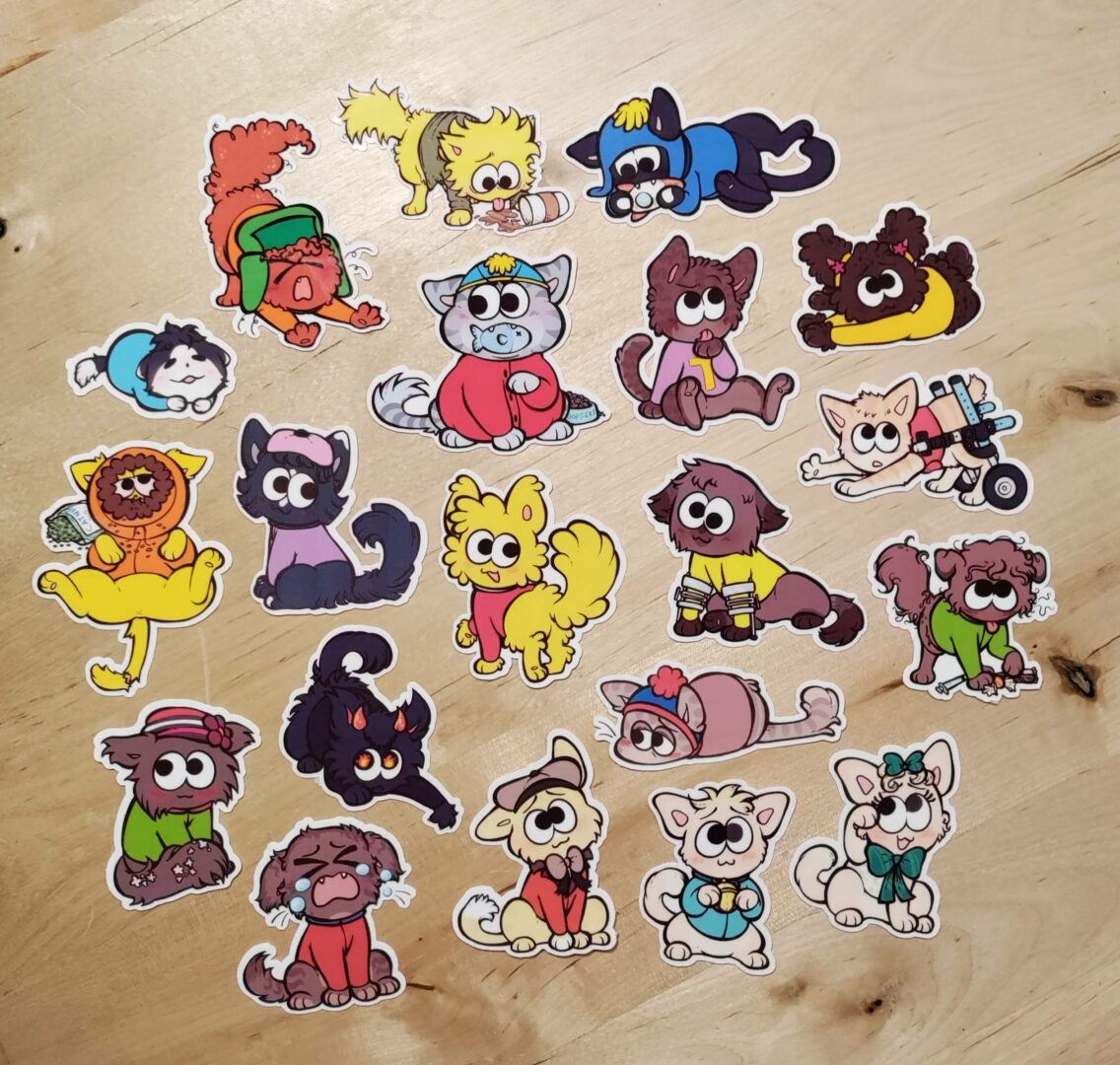
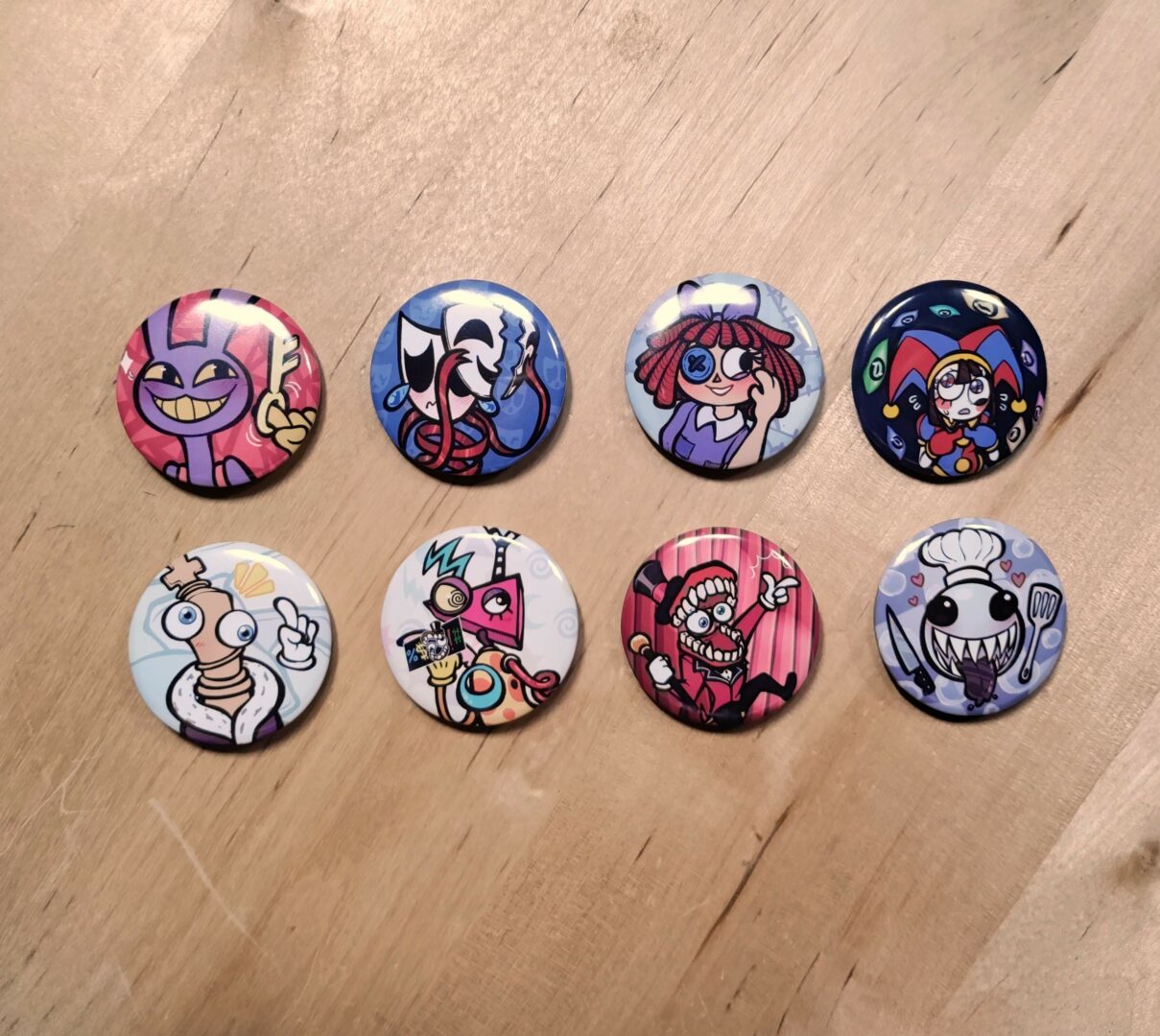
Image Credits
Ansel Robateau
so if you or someone you know deserves recognition please let us know here.

